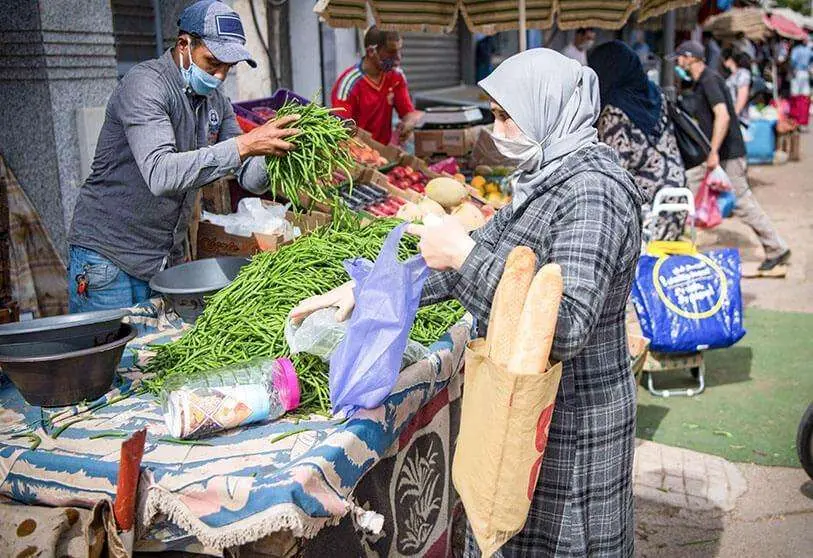Mustapha Baitas: el Gobierno de Marruecos hace todo lo posible para combatir el aumento de precios

The Moroccan government of Prime Minister Aziz Akhannouch has been criticised for the recent rise in food prices in the country, which has had a negative impact on the welfare of the population. This situation has provoked protests and triggered concern among citizens, who see their purchasing power diminishing by the day. The government has tried to justify the price increases by arguing that the current situation is a consequence of the pandemic, and government spokesman Mustapha Baitas said that the government has increased the supply of foodstuffs to markets to counteract the price increases.
In addition, the minimum wage has been increased by 40%, which will help low-income citizens cope with the higher prices. A programme has also been set up where citizens can apply for subsidies to buy basic commodities.
Baitas said the government is working to improve conditions for farmers so that food supplies are sufficient to meet demand, while the government is also putting pressure on large traders and retailers to keep prices low.

The Moroccan government spokesman acknowledged that the measures taken so far to control food prices have not achieved their objectives. In order to improve the situation, it has strengthened supervision of markets and imposed curbs on price hikers, as well as reducing exports to meet local demand.
Some Moroccans have strongly criticised the coalition government for increasing food prices during the month of Ramadan. They demand that the executive implement measures to ensure stricter controls and harsher punishments for price manipulators. This situation has generated dissatisfaction among some of the public, who are demanding that the government take more measures to address the problem. In this regard, the need for greater transparency on the part of the government to ensure that prices are more affordable for the population was highlighted. The government should also work to improve infrastructure to ensure a sufficient supply of low-cost food, as well as to improve producers' access to domestic and international markets.

The government has also taken measures to increase the supply of the most affected products, such as tomatoes, by importing crops from other countries. This will be complemented by the implementation of incentive programmes for local producers, thus increasing their production and improving the quality of the products.
The spokesman stressed that the government has been working closely with the private sector in order to improve the efficiency of the supply chain and reduce production costs. Baitas concluded that the government is confident that the measures that have been implemented, and those planned to be implemented, will have a positive impact on reducing prices. However, he acknowledged that the process will be slow and that immediate results will not be seen. In addition, the Moroccan government continues to take measures to combat the recent increase in food prices. These measures include increasing the minimum wage, supplying food products to markets, establishing subsidies for low-income citizens and putting pressure on traders and retailers to keep prices low.










